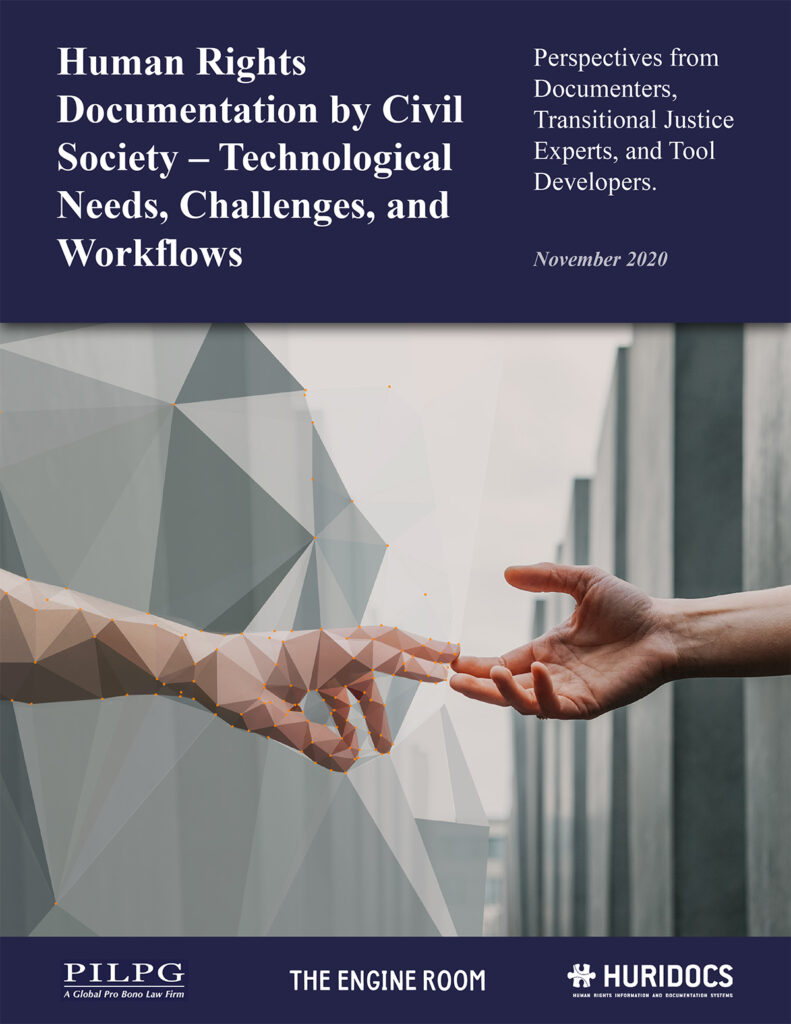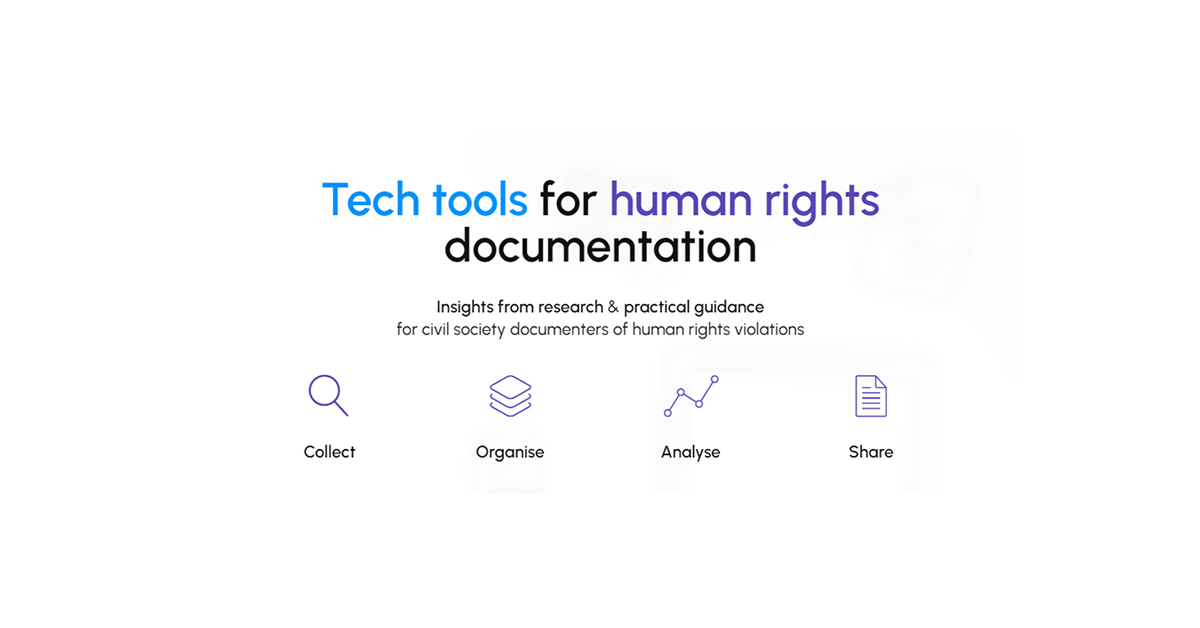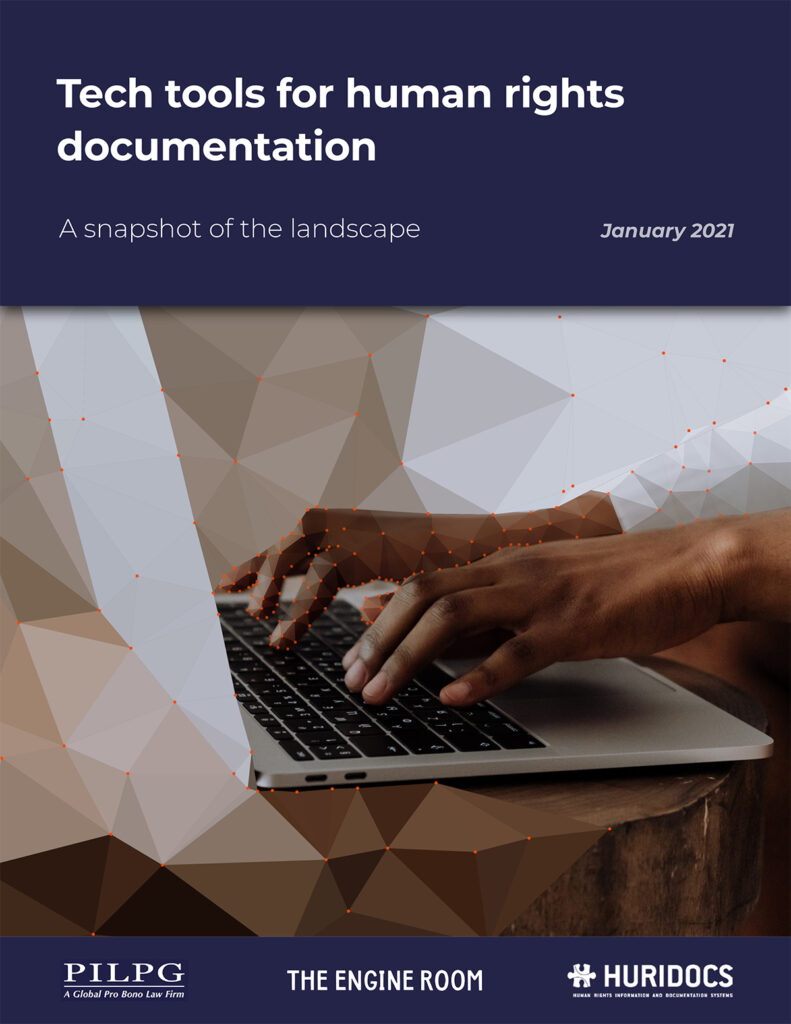What can we learn from civil society documenters of human rights abuses? What are their technology needs? What common strategies do they employ? What tools are available to civil society and justice actors?
To answer these questions, The Engine Room in partnership with HURIDOCS and Public International Law & Policy Group (PILPG) conducted research on human rights documentation practices. The findings are presented on the ‘Tech tools for human rights documentation’ website and shed light on the human rights documentation landscape, tool development in the human rights space and documentation for transitional justice mechanisms.
Research reports
The research, which was conducted in 2020, is based on interviews with civil society documenters of human rights violations, direct support organisations, tool developers and transitional justice actors. It includes findings from focus groups, roundtable discussions and independent research on relevant tools.
The research findings are published in two reports:

Research report
Human rights documentation by civil society: technological needs, challenges and workflow
Lessons learned and key insights
To present the findings in an accessible format, The Engine Room developed ‘Tech tools for human rights documentation’ which is available in English, French and Arabic. The focus is on lessons learned from civil society documenters, insights from tool developers and perspectives from transitional justice actors.
Key insights and practical guidance is gleaned from the different sectors and will be helpful to the following groups:
- Civil society organisations looking for guidance around choosing and using tech tools to support their documentation work
- Tool developers working in the human rights documentation space
- Funders and donors looking for insight into areas that need more support
- Transitional justice experts looking to better understand challenges faced by civil society organisations documenting human rights abuses for the purposes of accountability
Useful resources and further support
In addition to the research findings, the website provides a number of useful resources to the human rights documentation community.
Not sure how to approach a documentation project?
Have a look at the key considerations for decision-making around documentation tools. The guide includes information on the initial questions to ask about tools, how to design a system to support your entire workflow, important ‘non-technical’ questions to ask, security features and verification.
Curious about preserving the chain of custody of digital evidence?
Learn more about the chain of custody, why it is important and how it can prove the authenticity and reliability of a piece of evidence.
Want to find out which tool is the right one for you?
There is a very handy tools table that provides a brief overview of available documentation tools as well as a list of support organisations and online resources for further guidance.

